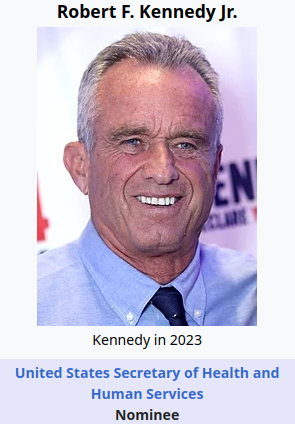The decision to cease Gain-of-Function (GoF) research in the United States was not abrupt, nor was it purely political—it was the result of a long and troubling accumulation of scientific, ethical, and procedural concerns. The tipping point came in the aftermath of the COVID-19 pandemic, with mounting evidence suggesting the need for caution, accountability, and re-evaluation of high-risk biological experimentation. Two crucial sources—an unilaterally attended Congressional hearing in September 2022 and a long-classified MK-ULTRA document released in December 2024—reveal the context and catalysts that led to the policy shift.
What is Gain-of-Function Research?
Gain-of-Function research involves manipulating pathogens to enhance their properties, such as transmissibility, virulence, or host range. Though potentially useful for understanding disease progression and preparing vaccines, such work also carries grave biosafety risks, particularly when applied to viruses capable of triggering pandemics.
Background: A History of Controversy
Before the COVID-19 pandemic, GoF research had already been a topic of heated debate. In 2014, under the Obama administration, a moratorium was placed on GoF experiments involving influenza, MERS, and SARS due to biosafety concerns. However, this moratorium was lifted in 2017 after the Department of Health and Human Services (HHS) introduced a new review framework—the Potential Pandemic Pathogen Care and Oversight (P3CO) guidelines.
Critics argued the review process was vague and unenforced, often sidestepped by agencies like the National Institutes of Health (NIH) and grantees like the EcoHealth Alliance. These concerns were amplified when the origins of the SARS-CoV-2 virus came under scrutiny.
The 2022 Congressional Hearing: A Republican-Only Forum
In September 2022, a Congressional hearing was convened to investigate GoF research and its possible connection to the origins of COVID-19. As noted in the transcript from Congressional Dish – CD258, no Democratic representatives attended the session. Host Jennifer Briney acknowledged the session’s one-sidedness but emphasized its importance due to the weight of evidence and unanswered questions presented.
“There is no definite conclusion about what caused the COVID-19 pandemic. Anyone who says that there is is either uninformed, misinformed, or lying,” Briney states, referencing a June 2022 World Health Organization report that explicitly confirms the origin of COVID-19 remains unknown due to missing key data.
The absence of Democratic voices at the hearing allowed Republican members and expert witnesses to drive the narrative without rebuttal. The testimony included critiques of EcoHealth Alliance’s grant management, inconsistencies in disclosures to the NIH, and potential biosafety lapses at the Wuhan Institute of Virology.
Key takeaways from the hearing included:
- Strong circumstantial evidence pointing to lab-origin theories, albeit without definitive proof.
- Concerns that oversight protocols like P3CO were not adequately enforced.
- Growing public distrust in federal biomedical agencies due to lack of transparency and accountability.
The MK-ULTRA Document Release: December 23, 2024
The long-awaited declassification of documents relating to Project MK-ULTRA—a covert CIA program that experimented with behavioral manipulation through drugs, psychological stress, and unapproved testing—provided chilling historical context for concerns about unchecked scientific experimentation. Among the newly released materials was a 1974 memorandum outlining a clandestine effort to explore “microbial engineering for strategic deterrence,” including potential pathogen enhancement through genomic manipulation.
Though MK-ULTRA officially ended in the 1970s, the document released on December 23, 2024, revealed that elements of the mindset—utilizing biology for covert advantage—persisted well into the late 20th century. This revelation reframed contemporary concerns about GoF research not merely as scientific, but deeply ethical and political.
The document also contained redacted passages that referred cryptically to “virological capabilities in East Asia” and “dual-use collaborations,” possibly alluding to the very type of cooperative research that later became the subject of scrutiny during the COVID era.
Policy Shift: A Precautionary Principle
By 2025, public sentiment, bipartisan concern, and accumulating evidence converged to halt government support for GoF research. The decision rested on several pillars:
- Scientific Uncertainty: No clear benefit was proven to outweigh the risks in developing super-viruses, particularly when existing surveillance and vaccine development mechanisms were effective.
- Transparency Failures: Congressional hearings exposed persistent gaps in reporting and oversight. Agencies like NIH had funded experiments resembling GoF through subcontracts—bypassing formal review.
- Historical Echoes: The MK-ULTRA release reawakened public fear about government-sponsored biological manipulation, especially under opaque conditions.
- Lack of International Safeguards: The absence of enforceable global standards for biosecurity made international collaboration on GoF research a liability.
Final Thoughts
The cessation of Gain-of-Function research represents a rare moment of administrative recalibration in response to public concern, historical reckoning, and scientific risk assessment. While some researchers argue this hampers preparedness for future pandemics, the evidence suggests a greater danger in forging ahead with poorly regulated, high-risk experimentation.
This policy shift underscores a broader need to reinforce ethical guardrails in scientific innovation, particularly where the stakes involve not just academic inquiry but global public health. The MK-ULTRA revelations and the 2022 hearing collectively serve as cautionary tales—reminders that with great power comes the demand for great oversight.
![]()





